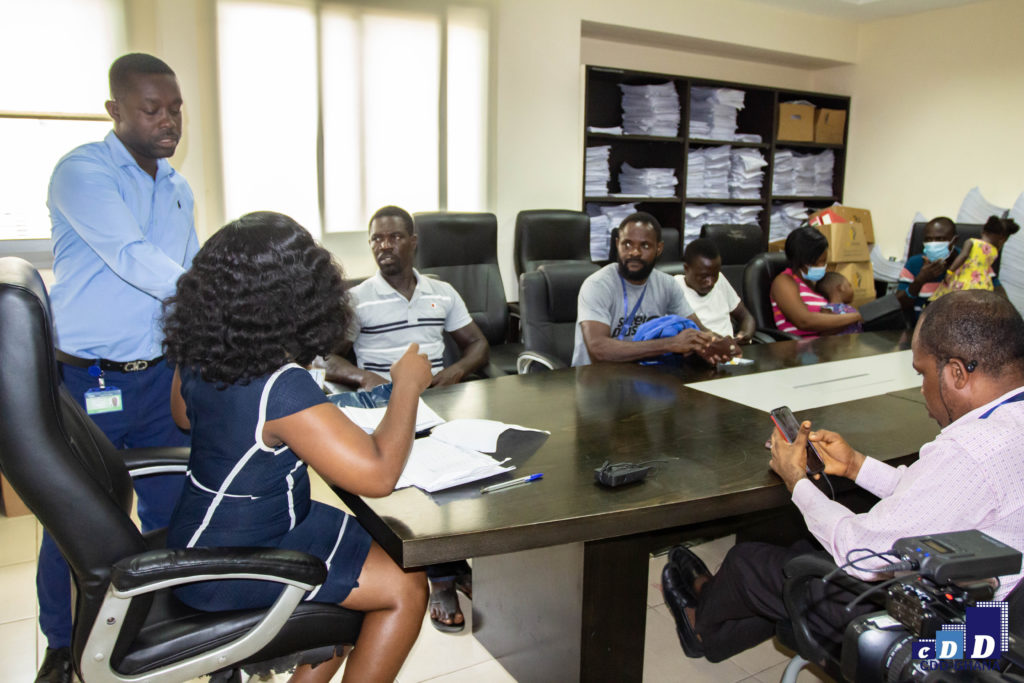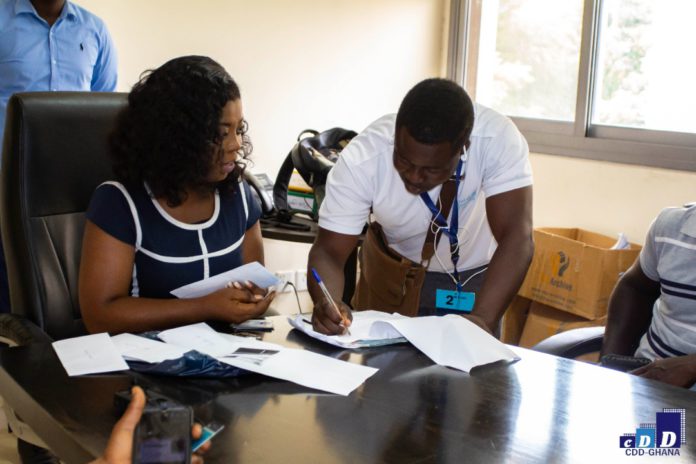The National Health Insurance Authority (NHIA) says investigative journalist Francisca Enchill’s ground-breaking investigation into illegal charges by some hospitals led the NHIA to effect policy changes aimed at stopping illegal charges and improving the health insurance scheme.
NHIA’s Communications and Media Relations Manager, Berima Sarpong, disclosed the policy change is intended to curtail illegal payments by subscribers along with an upward tariff review of 30% which is meant to affect all services and medicines covered by the National Health Insurance Scheme (NHIS) effective July 1, 2022.

He further explained that the policy review followed months of process and activities conducted by NHIA in response to taking corrective measures towards findings of the investigative story in a documentary dubbed, ‘Pay or die’ which exposed the practice of cash-and-carry system and the unlawful charging of unapproved fees from NHIA card bearing pregnant women.
The actions of the facilities defeated the reason which the policy was introduced and broke the provisions of the National Health Insurance Act, 2012 (Act 852) which declared Antenatal (drugs, laboratory tests, scans), Delivery (vaginal birth and caesarean section) and Postnatal completely free.
In June last year, Joynews broke a story titled, “Pay or Die! The agony of pregnant women in hospitals.”
In the two-part documentary, Investigative journalist, Francisca Enchill uncovered how pregnant women who were NHIS subscribers, hence entitled to free maternal healthcare were forced to pay for covered services and in worse cases, pregnant women in need of emergency care were left unattended to until payments were made for the covered service in a cash-and-carry manner.
The investigation captured the 37 Military Hospital, Korle-Bu Teaching Hospital, Mamprobi Hospital, and Maamobi General Hospital, Kaneshie Polyclinic and Ga West Municipal Hospital, popularly known as the Amasaman Hospital all engaged in the act that endangered the lives of pregnant women and their unborn babies.
Stakeholders of the health sector, the Ministry of Health, the Ghana Health Service (GHS), as well as the National Health Insurance Authority (NHIA) reacted immediately and constituted committees to investigate the findings and make recommendations for corrective action.
Mr Sarpong disclosed that following the release of the ‘Pay or die’ documentary, the Board of NHIA in collaboration with the Ministry of Health set up a committee to independently investigate findings of the investigative report.
This, he said, was due to the seriousness of the subject of the investigation which the NHIA refers to as unauthorised payments or co-payment. This according to him is the biggest challenge NHIA has with the NHIS.
According to him, upon the instruction of the Board’s committee, the Operations unit of NHIA set up a task force which was assigned to visit health facilities exposed by the investigation to confirm findings of the ‘Pay of Die’ report.
According to Mr Sarpong, the taskforce confirmed every fact established in the ‘Pay of Die’ documentaries that the named health facilities in the documentary were indeed charging unauthorized payments from pregnant NHIS subscribers for covered services.
The NHIA had in a letter dated August 26, 2021, addressed to Corruption, disclosed they had begun audits.
“…the Authority has conducted a series of ad-hoc audits, together with our routine clinical and compliance audits to gather evidence and identify reasons why co-payment was practiced in the identified healthcare provider site. A co-payment taskforce has also been instituted in the Authority for constant monitoring and auditing of these illegal acts. “Additionally, we have also strengthened public education and sensitization on the NHIS benefits package and the rights of members of the scheme” the letter read.
Mr Sarpong further disclosed that the audit established that health facilities captured in the investigation for unlawful charges had submitted claims in the names of victims who had already been made to unlawfully pay for covered services and whose receipt had already been submitted to NHIA by Corruption Watch as evidence of unlawful charge.
He said by illegally charging the subscribers and submitting claims again to NHIA for payment the hospitals broke the terms of their engagement with NHIA, hence, in punishment, NHIA withheld GHc16,469.71 as the total amount eight victims were unlawfully made to pay for covered services from the money NHIA was supposed to pay to the healthcare providers as claims.
“Once we confirmed that they had brought the same bills, we deducted the money of the victims from their claims as punishment” said Mr Sarpong.
The approval for the refund to the eight victims was given under the leadership of Dr Lydia Dsane-Selby, the former Chief Executive Officer of NHIA. However, the victims received the refunds in full on May 19, 2022 at the Head Officer of NHIA. This time, under the leadership of Dr Bernard Oko Boye.
The eight victims had their receipts submitted to NHIA by Corruption Watch as evidence of the unlawful charges.
They each spent between Ghc1,000 and Ghc1,500 for vaginal delivery and between Ghc3,000 and Ghc3,800 on Caesarean sections which are all supposed to be free under the Free Maternal Health Care Policy in public health facilities in Ghana.
The eight were unlawfully charged for maternity services and medicines during antenatal, delivery and postnatal which are all supposed to be free for NHIS subscribers at the Korle-Bu Teaching Hospital, 37 Military Hospital, Greater Accra Regional Hospital and Regional Hospital Koforidua.
According to Mr. Sarpong, in addition to withholding the GHc16,469.71 from the account of the hospitals involved, NHIA also cautioned the service providers and made them aware that a recurrence will attract severe sanctions.
Ghana Health Service (GHS) on the other hand, in a letter dated March 29, 2022 with Ref No: GHS/DGS/G.2 signed by the Director General of the GHS, DR. Patrick Kuma-Aboagye disclosed that the committee had completed its work and submitted the report.
GHS has, thus, directed all GHS facilities to stop charging unauthorized fees while management concludes corrective actions.
“In the interim, an administrative instruction has been issued directing all GHS facilities to stop the collection of any unauthorised fee,” the letter read.

